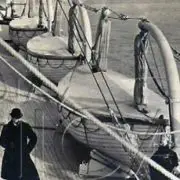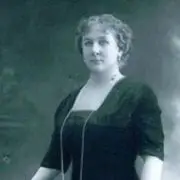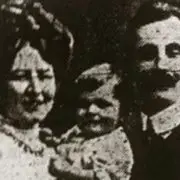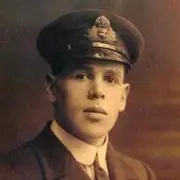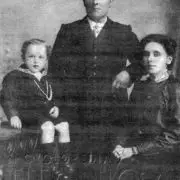The Lusitania : Part 7 : Passengers of Distinction
Amelia “Millie” Baker was another Lusitania passenger with show business aspirations. She had not, at age 27, achieved the same level of success as Rita Jolivet, nor had she garnered favorable reviews to compare to those of Josephine Brandell, but she had completed several years of schooling as an opera performer; studying under Trabadello in France, and Madame Giulia Valda in New York City. Her public debut was to have been in Madrid, in the fall of 1914, but war fears induced her to postpone the performance and return to New York. She was returning to Europe hoping to make her debut at the Opera Comique.
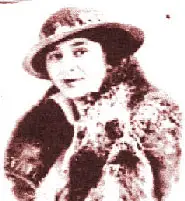
Miss Baker, who had been adopted from a New York City orphanage, grew up in Duluth, Minnesota. She kept in contact with friends and family there, and had last returned home at Christmas, 1914. Friends in Duluth received letters and post cards she mailed from the ship on May 1st. Her widowed mother, Mrs. Alfred Baker, was left with “I want you to always keep this letter, dear, from your own darling Millie” as her daughter’s final words. Millie wrote to her friends that she was eager to resume her musical studies, and looking forward to her public debut. She closed her final letter to her friend, Mrs. Horace Davis, with “By By. Love to all. Millie.”
Amelia Baker was lost in the disaster. Maryann Baker, her mother, collapsed at the news, and remained immobilized with depression. Miss Baker’s friends in New York and Europe promised her mother that they would do all they could to find Millie, alive or dead, but in the end no trace of the aspiring opera singer was ever found. Millie was the sole support of her mother, and it was to her that Miss Baker’s $2000.00 life insurance policy was left. Mrs. Baker was granted $15,000.00 by the Mixed Claim Commission, $14,800.00 of which covered the estimated value of Millie’s lost jewelry and wardrobe.
There was a side of Millie not preserved in the official record, and perhaps not known by her grieving mother. The unknown opera student was traveling in a very select circle, as the only quote we have located regarding her aboard the ship attests:
Presently, a party of us came together: Vanderbilt, C.F. Williamson, a dealer in antiques of Paris and a great personal friend of Mr. Vanderbilt; Edward Gorer, an art dealer of Bond Street; Mr. Slidell, a newspaper correspondent; and a lady known to us all, who lives in Paris, Miss Baker… ~George Kessler
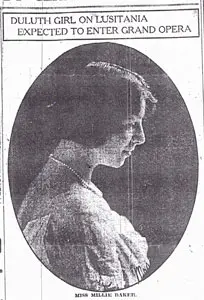
The phrase “A lady known to us all” has a sense of familiarity to it uncommon in 1915 accounts. One cannot imagine it applied, with its mild sexual subtext, to Mary Hammond or Lady Marguerite Allan, by any of the survivors. One notes that in contemporary interviews men were always very specific concerning the nature of their relationship with women other than their wives, mothers or sisters to avoid casting aspersion (“Who was the wife of a business acquaintance” “Who was introduced to me by Mrs. ___during the voyage” “Who sat at my table in the dining saloon” being typical of this) and it seems that Mr. Kessler may have been intentionally casting aspersion. Miss Baker was ticketed with C.F. Williamson, who paid for her passage, and they traveled in cabins that faced one another across the same hallway. They shared the same Fifth Avenue address, and applied for their passports with one another.

